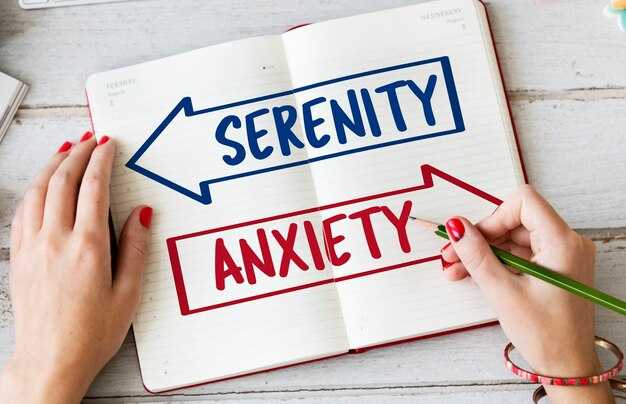When you finally stop investing your attention, something unexpected happens. The silence that once frightened you becomes a kind of calm. Their lack of messages no longer wounds you the same way. The constant overthinking, waiting and confusion begin to fade into an odd clarity. And that is precisely when something inside them shifts. For the avoidant-dismissive person, the instant you cease to care is the instant panic rises. They built their emotional world around control — around deciding when to come close and when to retreat. When you stop reacting and your withdrawal becomes real, you undermine the foundation of that control. They notice they no longer hold emotional power over you, and for someone who has survived by keeping others at arm’s length, that realization cuts deep.
On the surface they might appear calm, detached, unaffected; beneath that exterior lies a quiet desperation for dominance. Their whole dynamic with you was never purely about intimacy but about balance: the comfort of knowing you cared enough to pursue them, yet stayed distant enough not to overwhelm them. It’s a delicate choreography of distance and authority they perform almost instinctively. But when you step out of that dance and stop feeding the cycle, their inner equilibrium fractures. Your silence, indifference and peace unsettle them. They may not show it immediately, but inside they feel deprived of influence. They begin to wonder if you’ve truly moved on, if at last they have lost the one person who seemed to care regardless. For someone who has spent a lifetime building emotional walls, that moment feels like an earthquake beneath their defenses — it shatters the illusion that they are always in control.
Avoidance often grows from emotional scarcity. They fear being consumed, needed, trapped — and yet they also crave significance. This push-pull drives them to keep an emotional distance while keeping you close enough to maintain control. When you stop responding, you remove that leverage. You no longer validate their mixed signals, erratic behavior, or silent retreats. You stop trying to decode what went wrong and, instead, simply accept what is. To them, that acceptance reads like a loss of control. Suddenly you are not a character in their emotional script; you have left the stage, leaving them alone with their void. That is where the real struggle begins — not between you and them, but within them.
Their deepest fear is not closeness itself but irrelevance. Control made them feel safe. Their withdrawal wasn’t always a sign of indifference; it was a response to an inner alarm triggered by intimacy. Yet when you finally stop chasing, they realize control has slipped from their grasp and that terrifies them. They begin to encounter the vulnerability they have avoided all their life. It’s ironic: the walls they built to shield against emotional pain become the very prison that separates them from true connection. When you stop trying to scale those walls, they discover, too late, that their fortress is empty. The silence they once desired becomes suffocating, and the game of control becomes visible for what it is. Their avoidance depends on the illusion of power: showing toughness, indifference, scarcity. That illusion only functions while you remain emotionally invested. Once you stop responding, the façade collapses; your calm exposes their reliance on your reactions and reveals a truth they have hidden even from themselves — their distance was never strength but fear.
When the avoidant realizes they are losing their game, they often resort to testing maneuvers: small posts meant for you, a stray casual text, a vague apology, exaggerated nonchalance to provoke a response. These are not acts of genuine love but maintenance rituals to check if they still move you. Underneath, they cannot admit they are losing the very play they designed. They see that their coldness and avoidance did not make them stronger — only empty. The person who once needed you now finds you at peace, and that peace feels like rejection, like abandonment, even though they were the ones who pushed you away. This is the cruel paradox of their behavior: terrified of being left, they create the very conditions that bring it about.
At this crossroads the avoidant often descends into emotional chaos. Their behavior becomes confusing: warm one day, frosty the next; sudden displays of interest followed by disappearance; anger or blame when you move forward. Each erratic move stems from the same impulse — to regain control. They must win, even if winning has nothing to do with love and everything to do with maintaining emotional dominance. They don’t want you to leave peacefully; they want you to leave baffled, doubting your decision and the serenity you found, because as long as you are uncertain, part of their control remains. This is rarely a conscious manipulation; it is an instinct born of early wounds: control felt like safety, and losing control meant pain. So when you stop caring, their subconscious panics.
They may try one final series of tricks — sudden warmth, contrite messages, the performance of change — all aimed at eliciting a reaction. It can look like growth, but it is usually fear disguised as transformation. They reach out not out of genuine self-awareness but to test if they still have access to your emotions. If you respond warmly, they feel relieved — not because they miss you in the way you do, but because the world regains its meaning for them: the dance resumes, and they can retreat again feeling safe. If you don’t respond, they pivot: a new indifference, boastful claims about a different life, a display intended to convince you they’re fine without you. These are masks, carefully tended to make you doubt your worth and reel back into old patterns. If your insecurity reignites, they win — not love, but authority.
Seeing glimpses of the person you once loved only to have them vanish when it feels safe for them is bewildering and painful. You start to question everything: was any of it real? Did they ever care? The truth is complicated. Deep down, they did care, but not in the way you needed. Their affection was tangled with fear; their care conditioned by control. When you stop giving them the emotional foothold they relied on, panic replaces the love you expected — because they have lost the anchor that tolerated their inner disarray. That’s why their last manipulations often play on empathy: they know you are kind, and they try to draw you back through guilt, hardship, promises of change. You may be tempted to believe them because you once glimpsed their potential. But this version of themselves appears only when they need to reset the power balance. The moment you soften, they retreat behind their defenses again.
Beneath all manipulation lies pain. Behind avoidance, control and detachment is fear: fear of rejection, fear of dependence, fear of being seen too closely. When you withdraw, you force them to confront those fears. They begin to feel helpless, a sensation they cannot bear because it echoes old wounds — past moments when they needed someone and were met with dismissal. Each time they sense losing control, the same ancient pain surfaces. Their defensive behavior is not an arbitrary choice; it is learned, protective. Somewhere along the way they equated need with weakness and learned that emotional expression is dangerous. Yet despite their defenses, they crave connection and simply don’t know how to keep it without fearing entrapment. When you stop caring, you inadvertently shine a light on that internal conflict, revealing the cracks in their armor, and they must face the loneliness they have been avoiding for years.
They may distract themselves with new relationships, work, hobbies, or frantic searches for validation, but nothing fills the particular emptiness their avoidance has created — it is not your absence they are fleeing from but the fragment of self they abandoned. Their fear of helplessness drives self-defeating actions: withdrawing from intimacy to avoid hurt, only to lose the very connection that could heal them. It’s tragic. The more they run from vulnerability, the more isolated they become. Thus their final tricks — sudden warmth, feigned vulnerability, manufactured indifference — are desperate attempts to escape that truth. They are not trying to destroy you; they are trying to save themselves from an emotional imbalance they cannot tolerate. They act in hopes of rebalancing, even at the cost of both your hurts.
But such behavior cannot endure. Sooner or later the illusion collapses again, and they are left alone, puzzling over why the same story repeats. You begin to see through their patterns. The emotional storms that once pulled you in lose their power because you no longer react. In this silence, truth becomes visible: they were never really in control — control was a mask for fear. That realization pains them more than anything. Deep down they know their last gambit won’t always work; one day they will encounter someone who does not respond, does not chase, who refuses to be pulled into the cycle. That is the true wound: facing their unhealed emotional self. Loneliness won’t come only from others leaving but from their inability to let anyone truly stay.
Their final manipulations — the emotional U-turns, the sudden warmth, the crafted indifference — are the last flailing efforts to avoid that fact. They may try to convince themselves they are okay, but your quiet remains an echo that reminds them of what might have been if they had chosen vulnerability over fear. This awareness arrives slowly: in the quiet moments, on the nights without messages, in the dawning sense that the peace they sought has turned into emptiness. What you must understand is that your withdrawal is not revenge; it is healing. You stopped trying to save them and, in doing so, compelled them to meet the part of themselves they have been evading. That is the power of emotional peace: it unmasks the game. Their last manipulative play loses potency because you no longer need it. You have broken the cycle — not by fighting, not by proving your worth, but by leaving with your dignity intact.
Once you see the pattern for what it is, you stop responding from a place of anger or pain and instead act from clarity. You recognize that every silent treatment, every hot-cold swing, every sudden reappearance was never about love but about control. In that recognition, you no longer feel compelled to justify your value or explain your wounds. You stop dancing to the rhythm of their distance. You won’t chase clarity from someone who lives in confusion. In that stillness you reclaim what they once manipulated: your peace, your boundaries, your life. This is your turning point. It doesn’t happen all at once; peace arrives quietly, as peace often does. Eventually their silence will stop unnerving you, their mixed signals will cease to confuse you, and their indifference will no longer make you question your worth. You stop waiting for their texts and, when they come, you see them for what they are: tests, not truths. Don’t fall for them again. You have moved beyond their pattern.
Emotional games only work when both players agree to play. Once you step out, they lose their power. That is the disarming of the avoidant: your calm, clarity and silence — the very things they once used against you — become the walls that guard your peace. You start living for yourself: sleeping better, breathing easier, shedding a weight you didn’t realize you carried. You remember who you were before the confusion, before the emotional labor of trying to make someone ready to be seen. At first they will notice your emotional unavailability. Their old testing messages go unanswered; covert provocations receive no reaction. They will wonder if you have found someone else or truly moved on. In their bewilderment they will try again: another trick, another emotional sway, another performance of care. But this time you see the hollowness behind their words. You can almost sense the mask of panic beneath their composed face. They don’t know how to handle someone they can’t manipulate. They don’t understand how a person who once cared so deeply can leave without hatred. This is when they realize they have lost the power dynamic for good.
Avoidants thrive on emotional energy — your love, your pain, your confusion, even your anger. They need something that keeps you tied to them. But true, peaceful indifference is undefeatable. It renders them powerless, exposed, and forced to confront their emptiness. You begin to feel something they may never fully grasp: freedom. Not the kind won by closure or vindication, but the kind born of understanding. You see their actions as reflections of their wounds, not measurements of your worth. You no longer internalize their avoidance as evidence that you are unlovable; you understand it as fear of love. Their withdrawal was not an accusation against you but a defensive move. Realizing that liberates you. You stop replaying the past in search of answers because you know they left not because you lacked value but because closeness frightened them. You finally relinquish the impulse to fix what was never yours to repair.
From that release your ascent begins. Clarity transforms your silence into strength. You no longer chase, explain, or justify; instead, you pour your energy into yourself — your peace, growth and purpose. You learn that peace is not found in someone else but cultivated within. When you stop begging for what should be freely given, you see that love should not be earned through suffering or endurance; it should be stable, safe and reciprocal. The avoidant’s last ploys lose all their force at this stage. They may hover, probe and try to pull you back into the old rhythm, but nothing works. Their silence no longer wounds, their words can no longer sway you, their presence cannot command you. You have outgrown the emotional pattern they tried to trap you in. What once felt like grief now looks like clarity; what once broke you now builds you. As you fade into the background of their life, you start to recognize the courage it takes to let go and the love it takes to stop fighting for someone who won’t meet you halfway.
You begin to understand that peace cannot be found by fixing others but by choosing yourself. That is the thing they never expected: you did not return to the chase. The distance they assumed would drive you back instead liberated you and exposed the hollowness in their tactics. Their strategy collapses because without your reactions there is no game left to play. Now they must sit in the silence they once controlled and feel what they lost — not only you, but the version of themselves that might have loved differently if they had chosen vulnerability instead of fear. While they face that silence, you have entered a state they never before experienced: a peace that does not depend on anyone’s approval, a peace that holds when people leave and lets you look back without bitterness.
You don’t require their remorse or apology. You are already healed by the knowledge that peace is nonnegotiable. Freedom does not come from holding on; it comes from acceptance. You recognize that some cannot love except from afar because closeness awakens wounds not yet healed. You accept that some stories don’t need an ending because the lesson itself was the closure. You accept that walking away is not loss but the choice to prioritize yourself when someone else could not. Over time the pain fades. You stop waiting for that text, that apology, that realization. You cease replaying the what-ifs and begin living lightly again — stronger, softer, wiser. You understand that love should not feel like walking on glass. It should feel like home: a place of peace, mutual respect, and safety as a given.
You broke the cycle. You rose above the chase. In doing so you discovered the truest form of strength: not the fight to be chosen, but the courage to choose yourself. Their avoidance, silence and attempts at control no longer hold sway. Real power is not about controlling another; it’s about mastering your own emotions. Perhaps one day they will look back and see that the person they tried to control was the one who truly cared for them. They might remember your quiet, patience and compassion and finally understand what they pushed away. But by then it won’t matter: you will have built a life that no longer orbits their silence. Your peace will be your victory, your silence your strength, and your growth the proof that love need never require harm to be real — it simply must be given to the right person.
That is the final lesson, the one that arrives after the pain, the confusion, the games: you learn that what broke you was not the distance they kept but the belief that love must hurt. Once that belief dies, the whole story changes. Stop trying to rewrite the past and begin creating your future. When they try to contact you again, tugging you back into the old pattern, do not answer with fury or sorrow. Smile quietly, because you have seen what lay behind the curtain. You know the play. You have learned that the only true power in love is peace — and you have found it. That is the ending they never expected: not your sorrow, not your silence, but your peace. In a world where some people insist on controlling the relationship, nothing is stronger than someone who has finally learned to walk away without hate and to live without fear. When you stop the chase, stop the explanations, and stop waiting for the version of them that exists only in your hope, you win — not because they finally value you, but because you finally do. The peace inside you is not weakness but power: the quiet kind that comes from walking through fire and discovering you no longer burn. They may make one last effort to drag you back into the old rhythm, but you have seen too much, learned too much, and healed too much. The love you once gave them, you now give to yourself. Maybe one day they will understand what they lost when they mistook your kindness for weakness. But by then you will have been gone for a long time, building a life that no longer revolves around their silence. The greatest revenge is not proving them wrong; it is living calmly, freely and finally at peace.


 The Final Dirty Trick Avoidants Use When You Stop Caring (This Will Hurt) | Jordan Peterson">
The Final Dirty Trick Avoidants Use When You Stop Caring (This Will Hurt) | Jordan Peterson">






 Избегающее привязанность: эта «смена» — не отвержение. Это любовь (Не уходите) | Джордан Питерсон">
Избегающее привязанность: эта «смена» — не отвержение. Это любовь (Не уходите) | Джордан Питерсон">
 Обязательство означает БОЛЬШЕ, чем просто избежать Развода">
Обязательство означает БОЛЬШЕ, чем просто избежать Развода">
 Why Avoidants Only Chase You When These 3 Hidden Needs Are Triggered | Avoidant attachment style">
Why Avoidants Only Chase You When These 3 Hidden Needs Are Triggered | Avoidant attachment style">
 I Had No Friends… But Here’s What Finally Changed">
I Had No Friends… But Here’s What Finally Changed">
 When the Bedroom becomes a Chore…">
When the Bedroom becomes a Chore…">